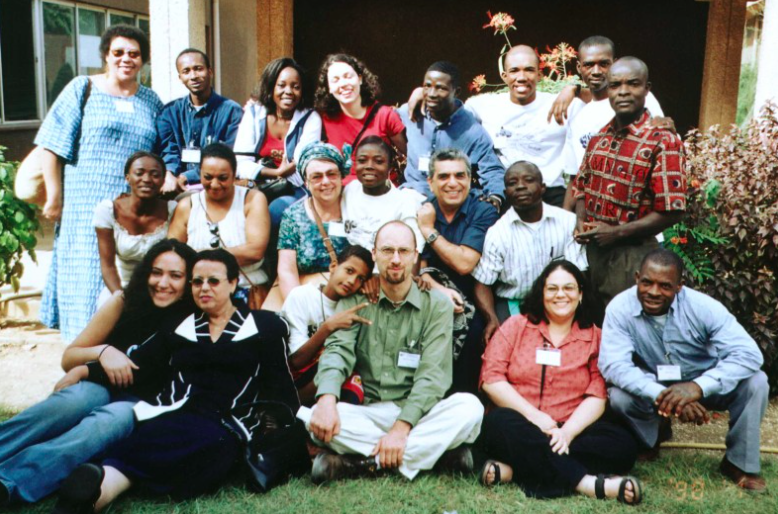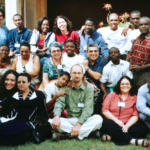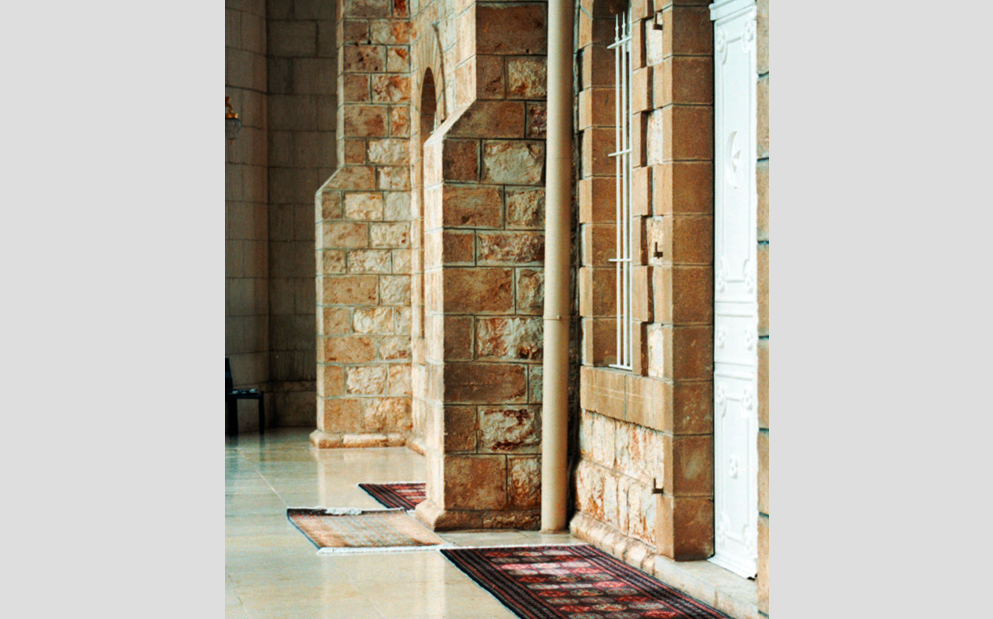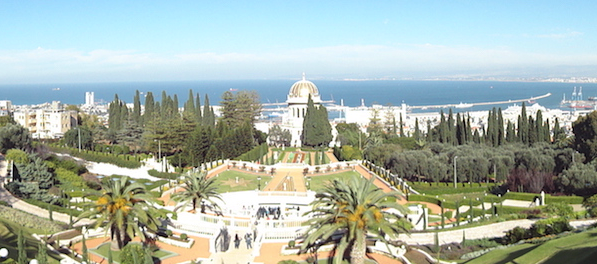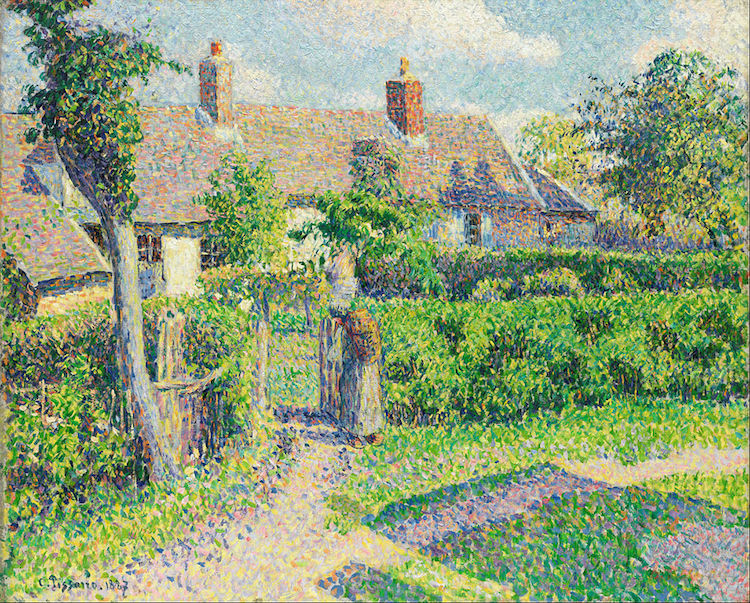
Troubled Times

It won’t have escaped your attention that we live in troubled times. The sense of uncertainty and unease is palpable even for those of us lucky enough to live at a distance from the world’s conflict zones. The world is suffering and we all know it. Every few days a new shock, a new event seems to edge us closer to even worse disaster. All the while human beings are suffering. We feel moved to respond in some way, but we often feel powerless. Increasingly human beings, communities and institutions are being driven apart.
It can be easy to become disheartened, to conclude (as many have done) that human beings are incapable of peaceful coexistence. This thought is unhelpful because it is paralysing.
What insights does Bahá’u’lláh offer on current conditions? That humanity is in troubled times is something that Bahá’u’lláh reflects in his writings.
How long will humanity persist in its waywardness? How long will injustice continue? How long is chaos and confusion to reign amongst men? How long will discord agitate the face of society? The winds of despair are, alas, blowing from every direction, and the strife that divides and afflicts the human race is daily increasing. The signs of impending convulsions and chaos can now be discerned, inasmuch as the prevailing order appears to be lamentably defective.[1]
Bahá’u’lláh gives us little comfort in these words. He is clear on the dangers facing humanity, and indeed since he wrote, two world wars and numerous revolutions and other events have fundamentally reshaped society. The accompanying human suffering has been so profound that it beggars description.
Yet, Bahá’u’lláh does not attribute the problems of humanity to its inherent character. Rather, as we see above, he identifies the structure of society as the heart of the problem. He does not regard human beings as essentially flawed. He states the opposite.
O SON OF SPIRIT!
Noble have I created thee, yet thou hast abased thyself. Rise then unto that for which thou wast created.[2]
Nor does Bahá’u’lláh foretell humanity’s imminent demise. Again, Bahá’u’lláh’s thought is in the opposite direction. Another passage from his writings presents our troubled times in another light.
The whole earth is now in a state of pregnancy. The day is approaching when it will have yielded its noblest fruits, when from it will have sprung forth the loftiest trees, the most enchanting blossoms, the most heavenly blessings. Immeasurably exalted is the breeze that wafteth from the garment of thy Lord, the Glorified! For lo, it hath breathed its fragrance and made all things new![3]
Here, in addition to humanity’s troubles we see the emergence of something new. And of course this is equally part of present trends.
Implicit here is the organic concept of humanity that is described in the previous article on the oneness of humanity. Such changes in organic life involve both dissolution of the old and emergence of the new. The challenge is to see clearly those trends that are positive for humanity, as opposed to those that can only cause humanity more harm.
Bahá’u’lláh’s metaphor above also alludes to an underlying spiritual reality which finds expression in the life of humanity. Reality is not limited to material existence.
Another way we might understand the metaphor is through the concept of latency. The beauty that is to emerge, that is emerging, from humanity is still latent and largely unobserved. Yet it is there. Organic entities (or entities that have organic characteristics) develop in periods of stability punctuated by dramatic change. The characteristics of an earlier phase do not accurately describe conditions after transition. Humanity is in the middle of such a transition. It is a transition to human maturity. Thus Bahá’u’lláh states:
Great and blessed is this Day – the Day in which all that lay latent in man hath been and will be made manifest.[4]
‘Abdu’l-Bahá outlines the concept of human maturity in one of his talks while in America.
All created things have their degree, or stage, of maturity. The period of maturity in the life of a tree is the time of its fruit bearing. The maturity of a plant is the time of its blossoming and flower. The animal attains a stage of full growth and completeness, and in the human kingdom man reaches his maturity when the lights of intelligence have their greatest power and development.
…
Similarly, there are periods and stages in the life of the aggregate world of humanity, which at one time was passing through its degree of childhood, at another its time of youth but now has entered its long presaged period of maturity, the evidences of which are everywhere visible and apparent. Therefore, the requirements and conditions of former periods have changed and merged into exigencies which distinctly characterize the present age of the world of mankind. That which was applicable to human needs during the early history of the race could neither meet nor satisfy the demands of this day and period of newness and consummation. Humanity has emerged from its former degrees of limitation and preliminary training. Man must now become imbued with new virtues and powers, new moralities, new capacities. New bounties, bestowals and perfections are awaiting and already descending upon him. The gifts and graces of the period of youth, although timely and sufficient during the adolescence of the world of mankind, are now incapable of meeting the requirements of its maturity. The playthings of childhood and infancy no longer satisfy or interest the adult mind.[5]
We are not powerless in the face of the problems of the world. Collective human behaviour is made up of billions of individual actions. The signs of emerging human maturity are everywhere. A life devoted to nurturing that maturity will hasten its arrival.
The betterment of the world can be accomplished through pure and goodly deeds, through commendable and seemly conduct.[6]
Bahá’u’lláh’s message is one of hope.
… these ruinous wars shall pass away, and the ‘Most Great Peace’ shall come…. [7]
This article is the 3rd in a series of what I hope will become 200 articles in 200 days for the 200th anniversary of the birth of Bahá’u’lláh. The anniversary is being marked around the world on 21 and 22 October 2017. The articles are simply my personal reflections on Bahá’u’lláh’s life and work, and any inadequacies in them are solely my responsibility.
Image Credit: Ted Cardell, 1952, Haifa. Copyright © Bahá’í International Community http://media.bahai.org/detail/4871971
